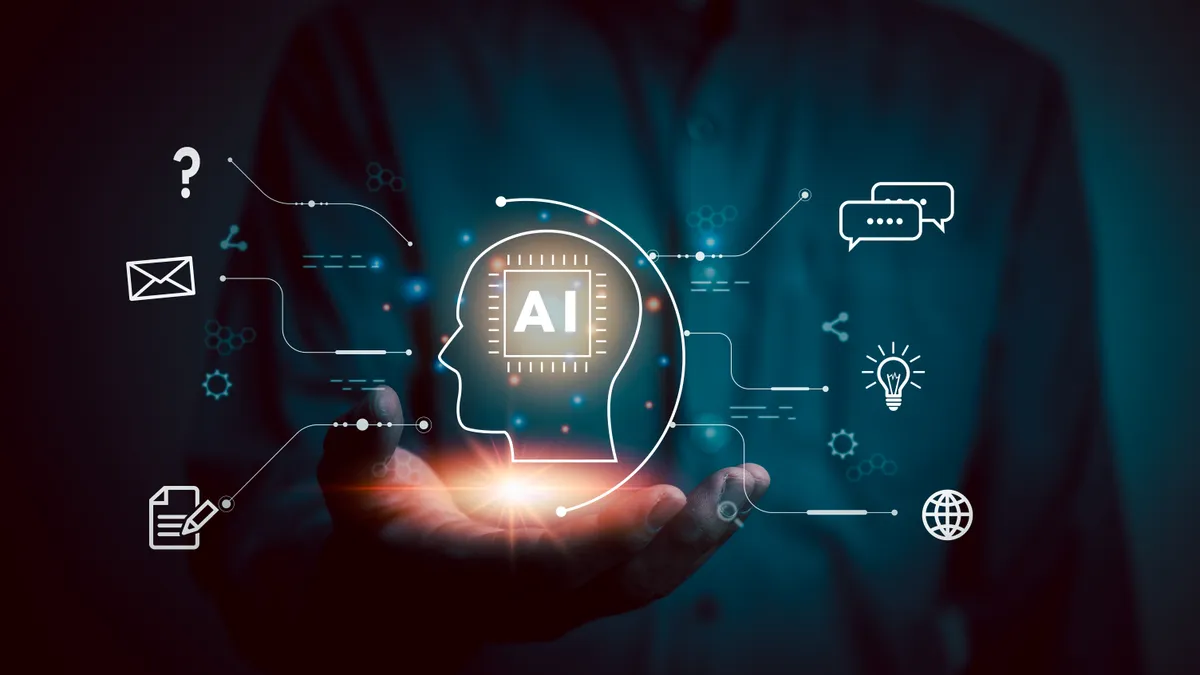Dive Brief:
- Nearly nine out of 10 marketers (87%) and communications professionals (85%) have used or experimented with artificial intelligence (AI) tools for at least one application, per a benchmark survey by The Conference Board in collaboration with Ragan Communications.
- The top applications of AI for marketers include summarizing content (44%), doing legwork or inspiring thinking (41%), personalizing customer and user content (33%), conducting research (30%), producing content faster (30%) and improving customer service (17%).
- However, slightly over four in 10 expect AI to improve work quality and creativity, while three in 10 expect a deterioration. Likewise, 40% of respondents believe AI will cause job availability to decline and 22% expect negative effects on team culture, demonstrating marketers’ mixed feelings about the emergent tech.
Dive Insight:
Marketing and communications professionals continue to experiment with AI, especially generative AI technology that has captured so much attention over the last nine months. Continued traction for AI in the industry comes despite concerns about the technology’s potential impact on various aspects of work, according to a survey of 287 respondents titled “AI in Marketing & Communications: Boosting Productivity—and Creativity, Too?”
“There is no doubt that new AI applications will transform the workflow in all areas of the marketing and corporate communications disciplines,” said Ivan Pollard, leader of the Marketing and Communications Center at The Conference Board. “We should embrace it, look for the upsides and focus on those places where our human genius is augmented by the power of machines. We work in an industry renowned for its innovation and we will keep driving forward powered by the insights and adventure.”
A majority of both marketers (68%) and communicators (60%) have incorporated AI into their daily workflow, and most (82%) expect further adoption of AI to improve productivity. The tech also gets high marks for enhancing learning and development, as well as providing financial results.
Mid-level and junior marketers are leading the charge of adopting AI, which the survey maintains will give them the power to shape the evolution of AI within their organizations. Meanwhile, senior marketers are more optimistic about gains in innovation, work quality and creativity.
However, marketers overall are more mixed on the impact of the technology, with more than 40% expecting improvement to work quality and creativity and nearly 30% expecting deterioration. Marketers also have concerns about the tech’s effect on jobs and team culture, along with issues around misinformation, inaccuracy and legal uncertainties that have cropped up with AI’s rapid rise.
“For marketers and communicators, a critical question has been AI’s impact on creativity and quality of work,” said Denise Dahlhoff, senior researcher of consumer research at The Conference Board and author of the report. “Our research suggests that there’s reason for optimism. If AI is used to inspire and augment — not replace — human ideas, the effect might well be synergistic and help elevate overall creativity.”















